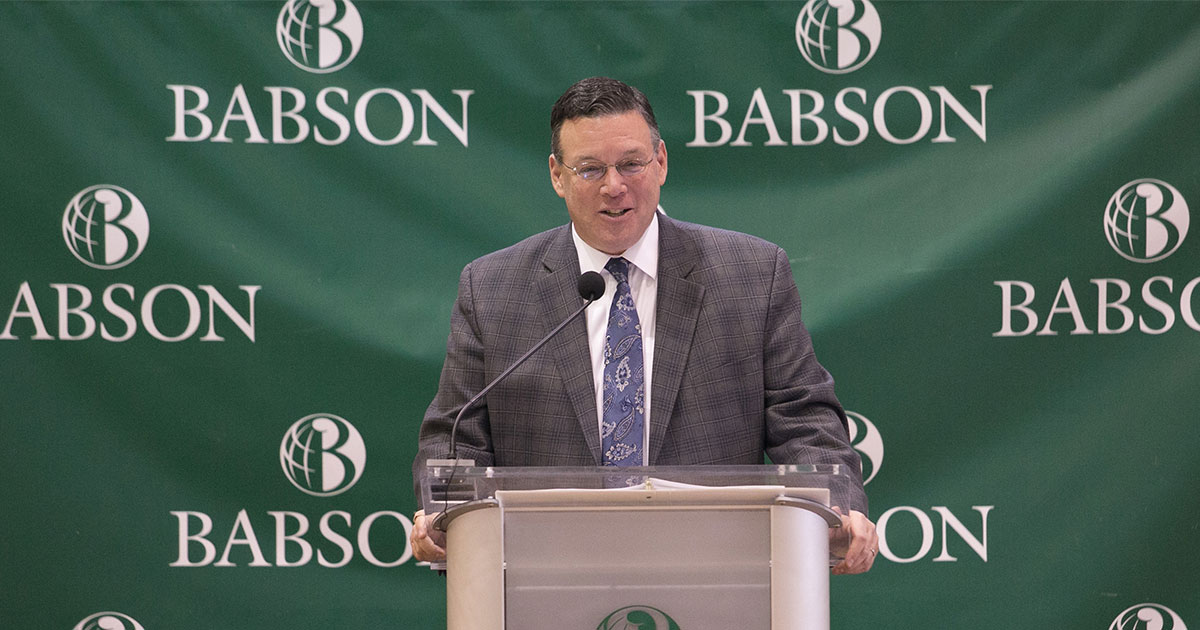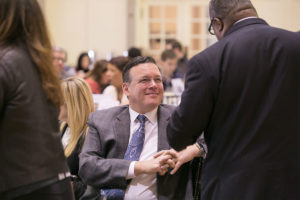When the Community Has Your Back

Growing up, Jeffrey Brown ’86 helped out in his father’s Philadelphia grocery. He worked closely with workers in all parts of the store, in the process learning about them and their roles. “They would teach me how they did their job and how to do it the right way,” says Brown.
The store was located in a low-income, predominately Black neighborhood, and among the customers and workers, Brown and his father were typically the only white people in the store. That experience left a lasting impression on Brown. It taught him to be comfortable and accepting of people different from himself. It taught him empathy and the ability to put himself in another person’s shoes.
As he grew up and became a grocer himself, the fourth generation of his family to do so, those experiences informed his decisions and how he led his own stores. “The lessons learned are really part of my DNA at this point,” says Brown. “They make me a better entrepreneur, a better retailer.”
Brown is the founder, president, and CEO of Brown’s Super Stores, which owns a dozen supermarkets in the Philadelphia area. About half of those supermarkets are located in low-income neighborhoods, places much like where Brown’s father had his grocery, in areas known as food desserts because they are otherwise devoid of grocery stores.

In their communities, those supermarkets have become critical. When anger and frustration from police brutality spilled out into the streets of Philadelphia in late spring, and looters damaged two of those supermarkets and forced them to temporarily close, Brown’s thoughts turned immediately to the people of those communities. “How are people going to get their food the next morning?” he thought.
The communities, meanwhile, were also thinking of those supermarkets, as well as all the support Brown had shown them through the years.
More Than Food
Brown’s supermarkets serve as more than just a place to buy food. They provide clinics offering affordable health-care services and credit unions that don’t require a minimum balance to have an account. The supermarkets also make a point to hire the formerly incarcerated, a population that can be hard-pressed to find work. Of the 2,500 people employed at Brown’s supermarkets, roughly 700 are formerly incarcerated. “We have a very different business than the average grocery store,” says Brown.
Brown’s commitment to community led him to co-found the Pennsylvania 30 Day Fund earlier this year. The fund provides forgivable loans, up to $3,000, to small Pennsylvania businesses affected by COVID-19 or social unrest. So far, the fund has raised about $2.5 million and awarded some 550 loans, with the ultimate goal being to give out 1,000 loans. Brown and the fund’s other board members look over applications every day, and they offer business advice to recipients.
When looting forced two of his supermarkets to temporarily close, Jeffrey Brown ’86 wondered, “How are people going to get their food the next morning?”
From barbershops to nail salons to restaurants, small businesses have a profound effect on communities, says Brown. “They play a significant role in making their communities whole,” he says. The jobs they provide are particularly important. “To have these places shut down is to end people’s livelihood,” says Brown. If too many small businesses are lost, the result could be catastrophic. “It’s a ripple effect,” says Brown. “It could create a tremendous downward spiral.”
This Matters
Given all that Brown has done for the community, his customers are appreciative of him and his stores. That was evident as looting broke out in Philadelphia. “I had stores where people showed up and tried to protect them,” says Brown. After one store was looted, the community came out in force to clean up. “They showed up before we did,” says Brown. “There were hundreds already there.”
Ultimately, two supermarkets suffered serious damage. In the aftermath, Brown donated food to community organizations until the stores could be reopened, and he received 15,000 messages, from texts and emails to Facebook posts, expressing support. “One customer checked in with me every day for a month on Facebook to give encouragement,” says Brown. When the two stores eventually reopened, well-attended prayer services were held at each location.
The outpouring of support reaffirmed for Brown the value of his supermarkets and his work in the community. It meant a lot to him. “It confirmed my belief that this is something that is special, that this matters,” he says.
Posted in Entrepreneurial Leadership




